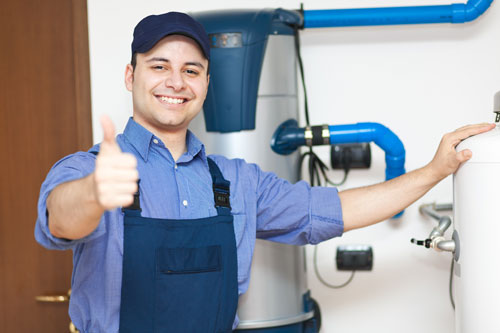Exploring Guide To Water Heater Issues
Exploring Guide To Water Heater Issues
Blog Article
Listed here below you will find additional amazing tips with regards to Common Problems with Tank Water Heaters.

Picture starting your day without your regular hot shower. That currently sets a bad tone for the remainder of your day.
Every residence requires a reputable water heater, however just a few understand just how to manage one. One easy means to maintain your hot water heater in top form is to check for mistakes routinely as well as repair them as quickly as they appear.
Remember to switch off your hot water heater prior to sniffing about for faults. These are the hot water heater faults you are probably to come across.
Water also hot or too chilly
Every hot water heater has a thermostat that identifies how warm the water gets. If the water coming into your house is too hot in spite of setting a convenient optimum temperature level, your thermostat could be defective.
On the other hand, too cold water might result from a fallen short thermostat, a busted circuit, or inappropriate gas circulation. For instance, if you utilize a gas water heater with a busted pilot light, you would obtain cold water, even if the thermostat is in best problem. For electric heating units, a blown fuse might be the offender.
Not nearly enough hot water
Water heaters can be found in many sizes, relying on your hot water demands. If you lack warm water before everyone has had a bathroom, your hot water heater is as well little for your family size. You need to think about installing a bigger water heater container or choosing a tankless water heater, which uses up less room and is more resilient.
Strange noises
There are at the very least five kinds of sounds you can speak with a hot water heater, but one of the most common analysis is that it's time for the water heater to retire.
First of all, you must be familiar with the typical sounds a water heater makes. An electric heater might sound various from a gas-powered one.
Standing out or banging noises usually imply there is a slab of debris in your storage tanks, and it's time to clean it out. On the other hand, whistling or hissing audios might just be your valves allowing some stress off.
Water leaks
Leakages can come from pipes, water connections, shutoffs, or in the worst-case circumstance, the container itself. Gradually, water will corrode the tank, and also find its way out. If this occurs, you need to change your water heater as soon as possible.
Nevertheless, before your change your entire tank, be sure that all pipelines remain in location which each shutoff works perfectly. If you still require help recognizing a leakage, call your plumber.
Rust-colored water
Rust-colored water implies one of your hot water heater elements is corroded. It could be the anode rod, or the tank itself. Your plumber will have the ability to recognize which it is.
Warm water
No matter exactly how high you set the thermostat, you will not get any hot water out of a heater well past its prime. A hot water heater's efficiency might lower with time.
You will certainly also get warm water if your pipes have a cross link. This indicates that when you turn on a faucet, warm water from the heating system flows in along with normal, cold water. A cross link is very easy to area. If your warm water faucets still pursue closing the hot water heater valves, you have a cross connection.
Discoloured Water
Corrosion is a major reason for filthy or discoloured water. Rust within the water container or a stopping working anode pole could trigger this discolouration. The anode pole protects the tank from rusting on the inside and should be examined annual. Without a rod or an effectively operating anode rod, the warm water swiftly wears away inside the container. Call a professional water heater service technician to establish if changing the anode rod will take care of the problem; if not, change your water heater.
Conclusion
Ideally, your water heater can last ten years prior to you require a change. However, after the 10-year mark, you may experience any of these mistakes a lot more frequently. At this point, you should include a brand-new water heater to your spending plan.
How To Troubleshoot 3 Common Water Heater Problems in Twin Cities
The Water Heater Is Leaking
A leaky cold water inlet valve A loose pipe fitting A leaky temperature and pressure relief valve A corroded anode rod A cracked tank Turn Off Your Water Heater:
Shut off your gas water heater by turning the gas valve on the unit to the “OFF” position. Shut off your electric water by switching its power off at your electrical panel. Look for a two-pole breaker labeled “water heater” and turn it to the “OFF” position. Move the ball valve connected to the water heater to be perpendicular to the piping at a 90° angle. Look for the Leak:
Depending on whether the water is coming from the tank's top or bottom, you’ll want to look for the leak in different locations.
If the leak comes from the top of the tank, carefully look for water escaping from the cold water inlet valve or loose pipe fittings. Rusted hot and cold water valves can have loose connections with the tank, with water leaking out of them.
https://mspplumbingheatingair.com/blog/how-to-troubleshoot-3-common-water-heater-problems
I am just very fascinated with Water Heaters Problems and I'm hoping you enjoyed our post. Make sure you take the opportunity to share this blog entry if you enjoyed reading it. Thanks a bunch for your time. Visit us again soon.
Book With Us Today! Report this page